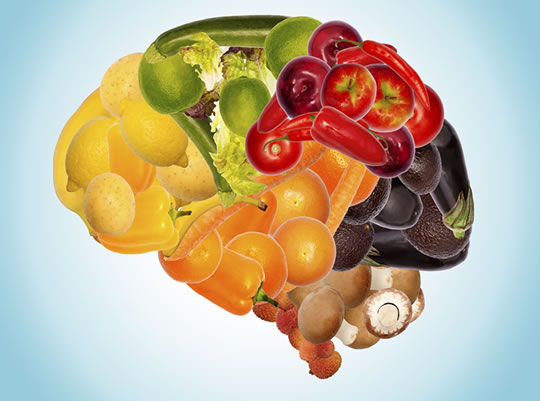
• Next article in this series: This Way of Socialising Cuts Depression Risk In Half
• Previous article: Depression Caused By How People See The Future, New Study Finds
This small change to your diet could be enough to reduce the risk of depression.
A Mediterranean diet including fruits, vegetables and legumes can prevent depression, a large new study finds.
People only had to make relatively small changes to see the benefits.
The scientist think that depression could be partly down to a lack of essential nutrients.
The study included 15,093 people who were followed over 10 years.
People who reported eating more nuts, fruits and vegetables were considered to be following the Mediterranean diet more closely.
Those who ate more meats and sweets were considered to be moving away from the healthy diet.
The benefits of the diet are likely related to higher levels of omega 3 and other essential nutrients.
Dr Almudena Sanchez-Villegas, who led the research, said:
“We wanted to understand what role nutrition plays in mental health, as we believe certain dietary patterns could protect our minds.
These diets are all associated with physical health benefits and now we find that they could have a positive effect on our mental health.
The protective role is ascribed to their nutritional properties, where nuts, legumes, fruits and vegetables (sources of omega-3 fatty acids, vitamins and minerals) could reduce the risk of depression.”
Relatively small dietary changes were enough to reduce depression risk, Dr Sanchez-Villegas explained:
“A threshold effect may exist.
The noticeable difference occurs when participants start to follow a healthier diet.
Even a moderate adherence to these healthy dietary patterns was associated with an important reduction in the risk of developing depression.
However, we saw no extra benefit when participants showed high or very high adherence to the diets.
So, once the threshold is achieved, the reduced risk plateaus even if participants were stricter with their diets and eating more healthily.
This dose-response pattern is compatible with the hypothesis that suboptimal intake of some nutrients (mainly located in low adherence levels) may represent a risk factor for future depression.”
The research was published in the journal BMC Medicine (Sánchez-Villegas et al., 2015).
Vegetable brain image from Shutterstock
6 Fascinating Ways To Fight Depressive Symptoms
→ This post is part of the series “6 Fascinating Ways To Fight Depressive Symptoms”:
- Depression Caused By How People See The Future, New Study Finds
- Depression: This Tiny Change to Diet Has Protective Effect
- This Way of Socialising Cuts Depression Risk In Half
- Depression Alleviated By Feeling Connected to a Group
- The Type of Facebook Use Linked to Depression
- The Simple Questions That Really Help Depressed People



